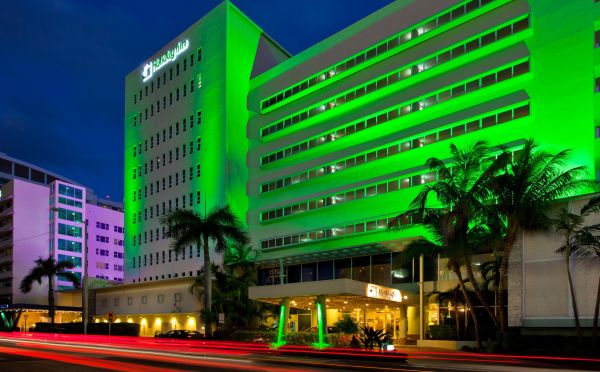
MIAMI—Hotel operating conditions are healthy, but sensitive to any disruption to US economic growth. So says a recent report from Ten-X.
Like other commercial real estate segments, demand in this cycle has reflected both broad cyclical features and lifestyle and technology-driven shifts. Specifically, Ten-X reports, consumers have shifted toward “experiential” spending and this has benefited travel.
“Miami's economy is strong, so this isn't a demand problem,” Ten-X chief economist Peter Muoio tells GlobeSt.com. “The key story in the Miami hotel space is heavy supply additions, which are pulling down occupancy rates as well as RevPAR. RevPAR has now decreased for five consecutive quarters, and with supply additions expected to continue over the next few years, we expect room rates and occupancy to take a hit.
Experiential spending is helping drive what the firm calls “robust” gains in hotel operating conditions. However, the firm adds, Airbnb has rolled out a new layer of competition to hotels, which has constrained both room demand and pricing power.
According to Ten-X, hotel revenue growth downshifted in 2016. That continued into 2017. The report reveals hotel revenue growth is ranging around the 5% level, about half the pace of 2014 and 2015. Still, the hotel outlook is good barring any economic downturn.
“A downturn in the economy would take hotel fundamentals with it, given the very tight and contemporaneous correlation between GDP growth and hotel revenue growth,” the report reads. “Given the array of economic landmines and the shift in monetary policy, we continue to build a mild downturn in 2019-2020 into our forecasts.”

MIAMI—Hotel operating conditions are healthy, but sensitive to any disruption to US economic growth. So says a recent report from Ten-X.
Like other commercial real estate segments, demand in this cycle has reflected both broad cyclical features and lifestyle and technology-driven shifts. Specifically, Ten-X reports, consumers have shifted toward “experiential” spending and this has benefited travel.
“Miami's economy is strong, so this isn't a demand problem,” Ten-X chief economist Peter Muoio tells GlobeSt.com. “The key story in the Miami hotel space is heavy supply additions, which are pulling down occupancy rates as well as RevPAR. RevPAR has now decreased for five consecutive quarters, and with supply additions expected to continue over the next few years, we expect room rates and occupancy to take a hit.
Experiential spending is helping drive what the firm calls “robust” gains in hotel operating conditions. However, the firm adds, Airbnb has rolled out a new layer of competition to hotels, which has constrained both room demand and pricing power.
According to Ten-X, hotel revenue growth downshifted in 2016. That continued into 2017. The report reveals hotel revenue growth is ranging around the 5% level, about half the pace of 2014 and 2015. Still, the hotel outlook is good barring any economic downturn.
“A downturn in the economy would take hotel fundamentals with it, given the very tight and contemporaneous correlation between GDP growth and hotel revenue growth,” the report reads. “Given the array of economic landmines and the shift in monetary policy, we continue to build a mild downturn in 2019-2020 into our forecasts.”
© 2025 ALM Global, LLC, All Rights Reserved. Request academic re-use from www.copyright.com. All other uses, submit a request to [email protected]. For more information visit Asset & Logo Licensing.




